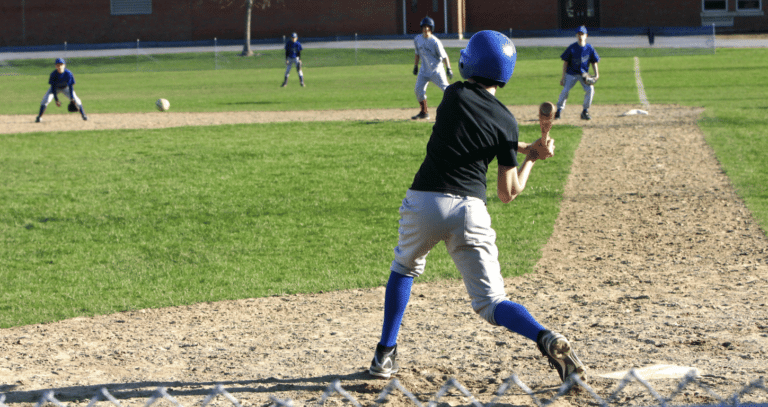How Guest Playing Helps Youth Players Sharpen Their Skills Year-Round
- Erik
- October 7, 2024
- 3:12 pm

Youth baseball players are always seeking ways to improve their skills, get more game time, and stay sharp, even when their regular teams aren’t playing. One of the most effective ways to achieve this is through guest playing—joining teams for weekend tournaments or additional games outside their regular schedule. Whether during an off weekend or after the season ends, guest playing offers players opportunities to continue developing their skills year-round.
More Game Time = Faster Skill Development
One of the most significant benefits of guest playing is the opportunity to get more reps in real-game situations. Studies show that players who participate in competitive games develop their skills at a faster rate than those who only practice. According to the National Alliance for Youth Sports, young athletes who engage in additional competitions experience a 30% faster improvement in skills compared to their peers who rely solely on practice routines.¹
Getting game reps, particularly at a young age, is vital to building skills under game pressure. It’s what separates average players from those who truly excel.²
Jim Thompson of the Positive Coaching Alliance
When players spend more time on the bench during regular-season games, they miss valuable reps. Guest playing ensures that these athletes get the playing time they need, whether it’s at-bats, innings pitched, or fielding opportunities. The more players compete, the more they improve through real-time decision-making and skill execution.
Exposure to Different Levels of Competition
Guest playing often introduces players to a wide range of competition levels, from local matchups to high-level tournaments. Competing against stronger opponents challenges athletes both mentally and physically, forcing them to sharpen their skills and adjust to faster gameplay. A study by the Aspen Institute found that youth athletes exposed to higher levels of competition demonstrate 35% more rapid skill acquisition than those who play within the same local leagues.³
This exposure allows players to identify areas for improvement, such as adjusting to faster pitching or making quicker fielding decisions. The challenges they face in these varied environments keep them competitive and engaged as they move through different levels of baseball.
Skill Retention During the Off-Season
The off-season can present a challenge for youth athletes, as skill degradation often occurs when players are inactive for long periods. Research from the Journal of Sports Science and Medicine shows that extended breaks from gameplay can result in up to a 20% decrease in hand-eye coordination and reaction times in young athletes.⁴ Guest playing offers a solution to this problem, providing consistent game opportunities that keep players sharp even during the off-season.
By staying active through guest playing, athletes maintain both their physical and mental sharpness, ensuring they are ready to hit the ground running when their regular season starts up again.
Building Mental Toughness and Adaptability
Guest playing isn’t just about physical development; it also builds mental resilience and adaptability. Playing for different teams in unfamiliar environments teaches athletes to quickly adjust to new teammates, coaches, and game strategies. These experiences foster a player’s ability to handle high-pressure situations with confidence and resilience.
A study by the American Psychological Association found that athletes who participate in diverse competitive situations, such as guest playing, develop 40% higher mental resilience than those who only play with a regular team.⁵ Coaches and sports psychologists emphasize the importance of this adaptability for long-term success.
Learning from Different Coaches
Exposure to different coaching styles is another key benefit of guest playing. Different coaches bring unique perspectives, techniques, and strategies that can help players grow. For example, a coach might introduce a new drill or focus on a specific area of a player’s game that hasn’t been emphasized by their regular team.
According to Tom House, former MLB pitcher and coach, “The more diverse the coaching exposure a player receives, the more complete their baseball education becomes.⁶” Players who learn from a variety of coaching approaches become well-rounded athletes, gaining insights they can bring back to their regular teams.
The more diverse the coaching exposure a player receives, the more complete their baseball education becomes.⁶
Tom House, former MLB pitcher and coach
Guest playing isn’t just about skill development; it also provides a platform for expanding social networks. Players meet new teammates, coaches, and scouts, which can open doors to future opportunities. According to Baseball America, 65% of players who participate in guest tournaments are invited to try out for travel or showcase teams through connections they made during these events.⁷
Building these relationships often leads to future baseball opportunities, while also fostering friendships that last beyond the tournament.
Conclusion
Guest playing provides youth athletes with invaluable opportunities to sharpen their skills, stay active, and enjoy baseball year-round. From getting extra game reps to exposure to higher levels of competition, guest playing helps young athletes grow without the pressure of a long-term commitment. For both parents and players, guest playing is an excellent way to balance fun with skill development, all while building lasting relationships on and off the field.
Sources:
- National Alliance for Youth Sports. “Youth Sports and Skill Development.” Retrieved from https://www.nays.org
- Positive Coaching Alliance. “Building Skills Through Game Reps.” Retrieved from https://www.positivecoach.org
- Aspen Institute. “State of Play: Youth Sports Participation Study.” Retrieved from https://www.aspenprojectplay.org
- Journal of Sports Science and Medicine. “The Impact of Off-Season Inactivity on Youth Athletes.” Retrieved from https://www.jssm.org
- American Psychological Association. “Resilience in Youth Sports.” Retrieved from https://www.apa.org
- Tom House. “Coaching Insights and Techniques.” Retrieved from https://www.tomhouse.com
- Baseball America. “Opportunities in Guest Playing and Tournaments.” Retrieved from https://www.baseballamerica.com
Similar Blogs Posts



Copyright © 2024. All rights reserved.




